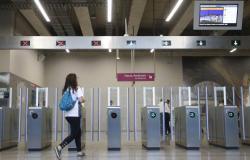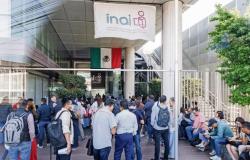The relatives of missing persons in the Piedmont village of the municipality of Fusagasugá, in the department of Cundinamarca, have raised an urgent request to the Colombian authorities to be granted protection measures.
This after the Attorney General’s Office opened a formal investigation against the Colombian exciclist Luis Alberto ‘Lucho’ Herrera, indicated for its alleged involvement in a case of forced disappearance.
The inquiry focuses on a property located in the municipality of Silvania, in the department of Cundinamarca, where it is presumed that victims of this crime could be buried. The investigation arises after the statements of three former members of paramilitary groups that link the former sportsman with these facts.
Now you can follow us in Facebook and in our WhatsApp Channel.
According to what he reported To fm From RCN on the morning of April 23, the relatives of the victims consider that the intervention of the authorities is crucial to guarantee the security of Herrera, who has been linked to these cases in circumstances that have not yet been clarified.

The application seeks to prevent any situation that may put your physical integrity at risk while the corresponding investigations are developed.
The case was assumed by a prosecutor of the specialized leadership against human rights violationswho has already issued the first orders to advance in the collection of evidence.
Among the scheduled actions, the realization of exploration and exhumation proceedings in the indicated property is contemplated, which will be carried out between April 21 and 26, 2025. These measures seek to obtain physical evidence that allows to locate the missing persons and determine the responsibility of the possible authors of these crimes.
Luis Alberto Herrera, recognized Colombian exciclista and winner of the Tour of Spain in 1987categorically rejected the accusations that link it with a case of forced disappearance and homicide of four people in the municipality of Fusagasugá, in 2000.
-The athlete issued a statement on April 21, 2025 in which he denied any relationship with the facts and described the imputations as unfounded.

The accusations arose after the statements of convicted persons (exparamilitaries) for serious crimes, and that when welcoming judicial benefits, they told the exciclist as alleged involved in the crimes.
These statements led to a criminal judge of the Fusagasugá Circuit ordered, on April 20, the compulsing of copies to the Attorney General’s Office to investigate Herrera’s possible participation in the events.
In the statement released by Herrera himself, the formerclist rejected the accusations, ensuring that he has never been involved in criminal activities or intended to cause other people. “I have never belonged to criminal organizations or tried to cause any person to any person,” affirmed.
The case that now involves the historic athlete dates back to 2000, when Herrera was kidnapped by the Revolutionary Armed Forces of Colombia (FARC). After his release, months later, crimes in Fusagasugá would have been registered, which has generated speculation about his possible relationship with the facts.

However, Herrera has insisted that these accusations lack foundation and come from people seeking to reduce their penalties through judicial agreements.
The “Garden of Fusagasugá” took advantage of his statement to highlight his professional career and his commitment to honest work after his retirement from sport.
Herrera marked a milestone in the history of Colombian cycling by becoming the first Latin American to win one of the three great turns of world cycling, stressed that his life has been dedicated to sport and activities away from any type of illegality.
Herrera’s trajectory, which in addition to his victory in the Tour of Spain achieved important triumphs in competitions such as the Tour of France and the Tour of Italy, has been a source of pride for Colombia for decades. Now, his name is involved in a judicial case that could have implications for both his legacy and for the country’s justice system.







